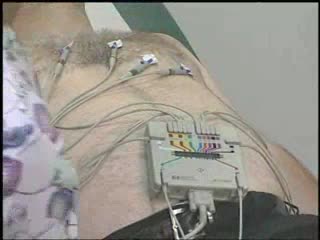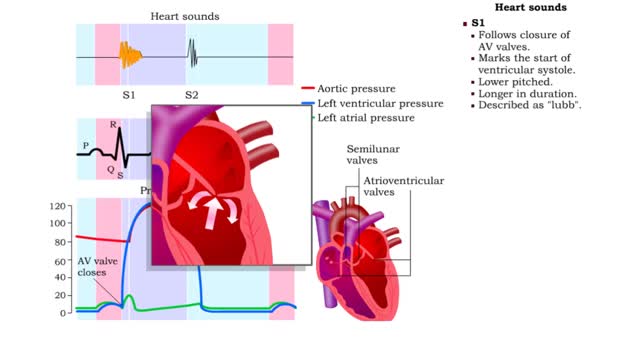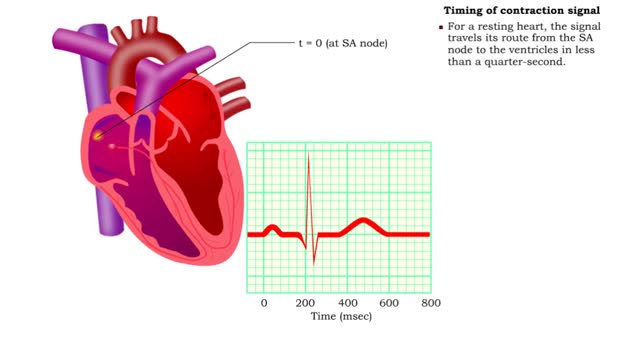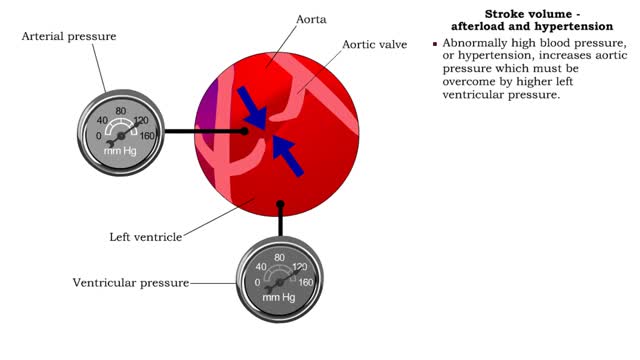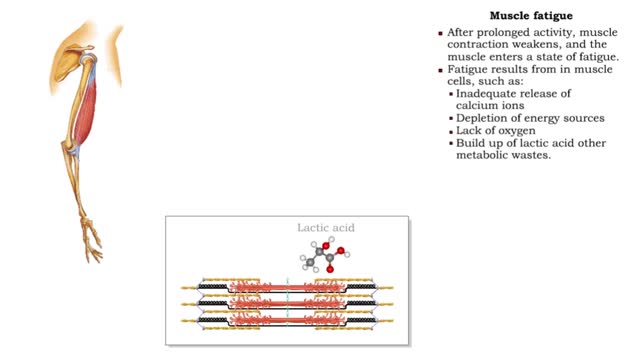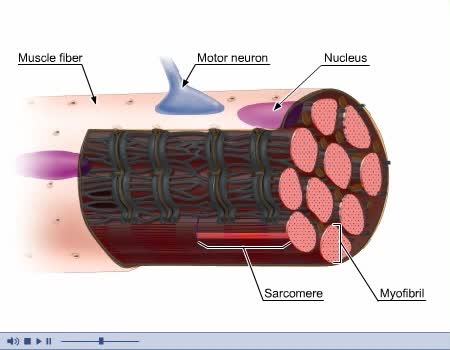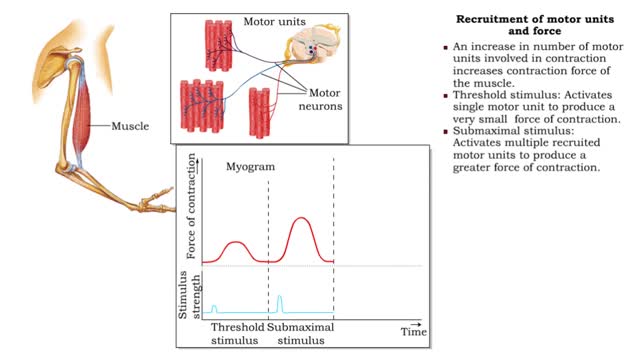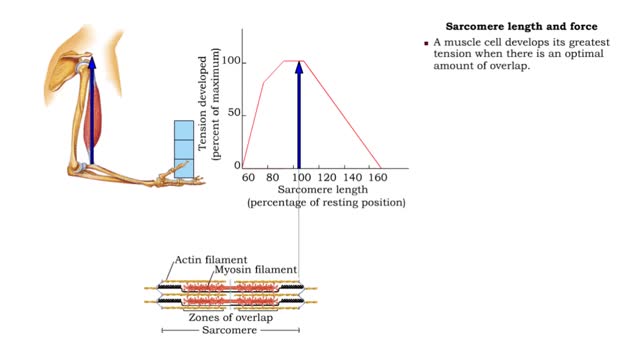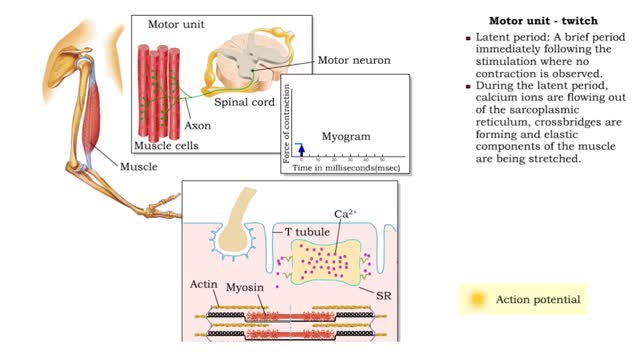Search Results
Results for: 'ventricular muscle'
By: Administrator, Views: 14466
An electrocardiogram (ECG or EKG) is a test that checks how your heart is functioning by measuring the electrical activity of the heart. With each heartbeat, an electrical impulse (or wave) travels through your heart. This wave causes the muscle to squeeze and pump blood from the heart. Sinoat...
By: HWC, Views: 11655
During a normal, healthy heartbeat, or what we call a cardiac cycle, the top two chambers of the heart, called the atria, contract simultaneously. Then, as they relax, the bottom two chambers, called the ventricles, contract. This explains what happens during a cardiac cycle, but what it doesn't ...
Coaductile pathway, Timing of contraction signal & Conduction system and ECG
By: HWC, Views: 11854
• When the system is healthy, the signal to contract the entire conduction system originates in the SA node - known as the heart's pacemaker. • The SA node triggers contraction because it depolarizes at a faster rate than other parts of the conduction system. • The wave of excitation fr...
Stroke volume - afterload definition & hypertension
By: HWC, Views: 11028
• Pressure (or other resisting force) that ventricles must overcome to push open semilunar valves and eject blood. ▪ Normally, the left ventricle blood pressure must overcome arterial pressure in the aorta. ▪ Abnormally high blood pressure, or hypertension, increases aortic pressure w...
By: HWC, Views: 11388
• After prolonged activity, muscle contraction weakens, and the muscle enters a state of fatigue. • Fatigue results from in muscle cells, such as: • Inadequate release of calcium ions • Depletion of energy sources • Lack of oxygen • Build up of lactic acid other metabolic w...
By: Administrator, Views: 14511
Three basic types of muscles: - Skeletal - Smooth - Cardiac Composed of striated or smooth muscle tissue and classified according to their functions and appearance. Skeletal Muscle: - Also known as voluntary or striated muscle. - Controlled by the conscious part of the brain and attach...
Frequency of stimulation and force (Recruitment of motor units and force)
By: HWC, Views: 11934
• Muscle tension depends on the frequency of stimulation. • Muscle twitch: First stimulus. • Wave summation: When a second stimulus excites a partially relaxed muscle, producing a stronger contraction. • Unfused tetanus: Successive stimulations at the same frequency, producing a se...
Factors that influence muscle tension - Sarcomere length and force, understretched and overstretched
By: HWC, Views: 11738
• Muscle tension generated through the contraction of muscle cells provides the force necessary for the muscular system to function. • The amount of tension produced depends on several factors: • Sarcomere length Frequency of stimulation • Motor unit size • Recruitment of moto...
Muscle Twitch and Muscle Tension - Motor unit size and force
By: HWC, Views: 11917
• A motor unit is a group of muscle cells controlled by a single neuron. • A stimulus of sufficient intensity will cause all the cells in the motor unit to contract. • A single contraction, caused by a single action potential, is called a muscle twitch. • Latent period: A brief per...
Advertisement



